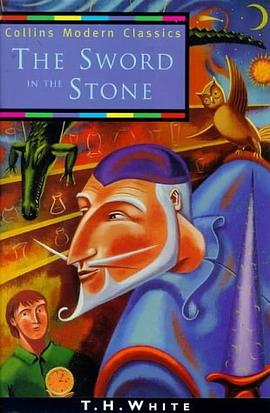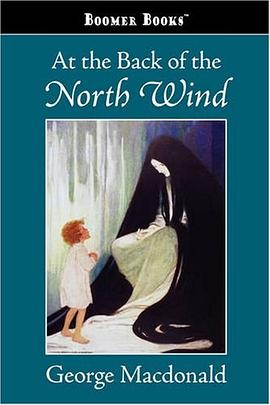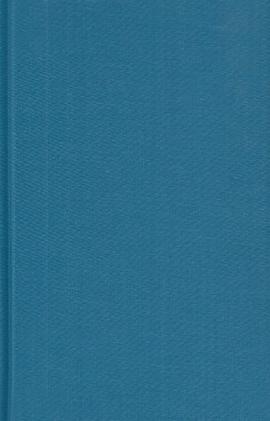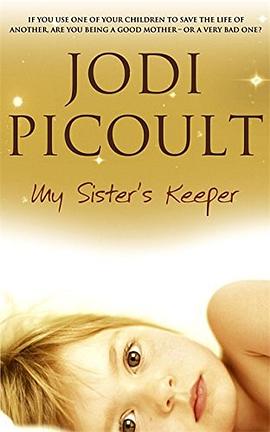

具体描述
Though one of the best-known books in the world, Pinocchio at the same time remains unknown—linked in many minds to the Walt Disney movie that bears little relation to Carlo Collodi's splendid original. That story is of course about a puppet who, after many trials, succeeds in becoming a "real boy." Yet it is hardly a sentimental or morally improving tale. To the contrary, Pinocchio is one of the great subversives of the written page, a madcap genius hurtled along at the pleasure and mercy of his desires, a renegade who in many ways resembles his near contemporary Huck Finn.
Pinocchio the novel, no less than Pinocchio the character, is one of the great inventions of modern literature. A sublime anomaly, the book merges the traditions of the picaresque, of street theater, and of folk and fairy tales into a work that is at once adventure, satire, and a powerful enchantment that anticipates surrealism and magical realism. Thronged with memorable characters and composed with the fluid but inevitable logic of a dream, Pinocchio is an endlessly fascinating work that is essential equipment for life.
作者简介
Carlo Collodi (1826–1890) was the pen name of Carlo Lorenzini. He was born in Florence, where his father served as the cook for a rich aristocratic family; his mother, though qualified as a schoolteacher, worked as a chambermaid for the same family. Lorenzini took the name Collodi from his mother’s hometown, where he was sent to attend school. A volunteer in the Tuscan army during the 1848 and 1860 Italian wars of independence, Collodi founded a satirical weekly, Il Lampione—which was suppressed for a time by the Grand Duke of Tuscany—and became known as the author of novels, plays, and political sketches. His translation from the French of Charles Perrault’s fairy tales came out in 1876, and in 1881 his Storia di un burratino (Story of a Puppet) was published in installments in the Giornale per i bambini, appearing two years later in book form as The Adventures of Pinocchio. Collodi, whose writings include several readers for schoolchildren, died in 1890, unaware of the vast international success that his creation Pinocchio would eventually enjoy.
Geoffrey Brock is the prizewinning translator of works by Cesare Pavese, Umberto Eco, Roberto Calasso, and others. He teaches creative writing and translation at the University of Arkansas. His Web site is www.geoffreybrock.com.
Umberto Eco is a professor of semiotics at the University of Bologna and the author of numerous novels and collections of essays, including The Name of the Rose, Foucault’s Pendulum, and most recently, Turning Back the Clock: Hot Wars and Media Populism.
Rebecca West is a professor of Italian and of cinema and media Studies at the University of Chicago. She is the author of Eugenio Montale: Poet on the Edge and Gianni Celati: The Craft of Everyday Storytelling, and is co-editor of The Cambridge Companion to Modern Italian Culture
目录信息
读后感
整篇故事最多笔墨悉数投在男一号——木偶匹若曹身上。不过本人向来挑眉染指配角[自PIA] 科洛迪的书里面,幽默搞笑深沉装酷神经兮兮 总之各式各样的配角包君满意。 废柴话以上,本女中意的配角清单如下。 会说话的蟋蟀大人 出场第12页,说话时一口学究腔,被木偶威胁一番仍镇定...
评分《木偶奇遇记》 重读一遍,主要是陪夜读的小孩,作为床前童话,我大概12年前就已经读完了。回忆当初,觉得很喜欢,时隔多年再读,却难免认为幼稚,情节勉强,人物模板化,道德规犯化,思想主题正面,不幸的是,主人公的幸福来得莫名奇妙,勇敢得不知所已。仔细分析这部成功了一...
评分木匠杰佩托用一块有灵气的木头做成了木偶,他的名字叫匹诺曹。 匹诺曹的故事是一个坏孩子变成好孩子的故事,他有着普通孩子的情感,天真勇敢,但他也有普通孩子常见的坏毛病撒谎、贪玩、任性、缺乏判断力、意志不够坚定。 看完此书有种在看自己成长的故事,故事里匹诺曹的所...
评分《木偶奇遇记》的主角是一只由木匠制造的会说话的神奇木偶—皮诺乔。皮诺乔的故事相信我们很多人在故事书或影视剧里都有所了解过:一个任性、撒谎、懒惰、不爱学习的顽皮木偶经过种种磨难后变成了诚实、勤劳、好学的好木偶,最后仙女把它变成了真正的孩子。简言之,就是黑化的...
评分用户评价
从结构上来看,这本书的象征意义是极其丰富的,可以说它是一部披着奇幻外衣的哲学寓言。虽然故事线索清晰,但细究起来,书中出现的每一个元素——从那把会说话的木工工具,到最后那个冰冷的结局——都像是精心设计的符号。它探讨了关于“真实性”与“虚假性”的永恒命题。究竟什么才算得上是真正的“生命”?仅仅拥有躯壳是否足够?还是说,只有通过无私的奉献和深刻的自我牺牲,才能真正获得某种形式的“成人礼”?这些宏大的主题,作者处理得极其巧妙,没有让它们显得沉重或说教。它们自然地融入到探险的每一个环节中,让读者在跟随主角经历惊险刺激的同时,也在潜移默化中被引导去思考这些深刻的问题。这本书的价值,远超出了一个简单的睡前故事。
评分我特别欣赏作者在塑造人物内心冲突时所展现出的那种大胆和坦诚。这本书的核心魅力之一,就在于它毫不回避地展示了一个“不完美”的主角形象。他拥有所有的天赋和机会,却屡屡被最原始的欲望和最浅显的诱惑所俘获。这种“屡败屡战”的描写,让人感到无比的真实和亲切。我们都被教导要追求真理和善良,但书中的主角却用血淋淋的教训告诉我们,人性中那些想要走捷径、想要逃避责任的阴暗面是多么强大。每当他做出错误的决定时,作者并没有用说教式的语言去谴责他,而是通过环境的变化和周围人的反应,间接地烘托出他行为的后果。这种“展示而非告知”的叙事技巧,使得角色的成长过程显得尤为可信,因为你知道,他所有的进步都是用真实的痛苦和教训换来的,而不是一蹴而就的奇迹。
评分这本书的另一个亮点在于,它对“后果”的描绘是如此的冷峻和彻底。很多同类型的作品,即便主角犯了错,最终也会被一个万能的解决方案或外部力量轻易地挽救回来。然而,这本书的作者显然更倾向于一种更为残酷但却更具教育意义的现实主义。每一个轻率的选择,每一个逃避责任的瞬间,都会带来相应且难以磨灭的印记。这些印记不仅是外界的惩罚,更是主角内心深处的烙印。我尤其佩服作者在描绘“转变”时的笔法——它不是一个突然的顿悟,而是一个漫长、反复、伴随着阵痛的过程。你看着主角一步步地从一个贪玩、自私的木偶,挣扎着想要成为一个有血有肉的人,那种挣扎的力度和真实感,让我久久不能平静。它让人明白,真正的成长,从来就不是轻松愉快的旅程。
评分这本书的语言风格,尤其吸引我的是那种特有的,带着一丝忧郁和古老的韵味。它不像现代小说那样追求直白和速度,而是更注重词语的选择和句式的长短变化,读起来有一种在翻阅一本泛黄羊皮纸手稿的感觉。作者似乎很偏爱使用一些略显繁复的修饰语,但这非但没有造成阅读障碍,反而为整个故事增添了一种庄重的仪式感。举例来说,对那些非人类角色的刻画,不仅仅是简单地赋予他们语言能力,而是赋予了他们一套完整的、难以捉摸的“世界观”。比如那个神秘的狐狸和猫,他们的每一次对话都充满了双关和半真半假,让你必须放慢速度,反复咀嚼才能捕捉到话语背后的真实意图。这种语言上的“密度”,使得每一次重读都会有新的发现,这绝对是一部可以反复品味,每次都能从中汲取新营养的经典之作。
评分这本书的叙事节奏简直是教科书级别的流畅。从开篇那个充满乡野气息的小木匠工作室,到后续一连串奇遇的展开,作者对情节推进的把控拿捏得炉火纯青。你几乎能感受到每一个转折点的必然性,没有丝毫的牵强附会。比如,当主角面对那个诱人的“玩乐岛”时,那种被魔力吸引的犹豫和最终的坠入,描绘得细腻入微,让人仿佛置身局中,替他捏一把汗。更值得称道的是,作者对场景氛围的渲染能力。无论是阴森的鲸鱼腹地,还是阳光明媚却暗藏玄机的森林小径,文字的笔触都极其富有画面感,色彩感强烈到让人能闻到空气中的湿气和泥土的芬芳。读起来,你不会觉得是在被动接受故事,而更像是在参与一场精心设计的、引人入胜的冒险。这种行文的功力,让普通的童话故事瞬间拔高到了文学作品的层次,即便是成年人,在翻过那些看似简单的情节之后,也能品味出其中蕴含的对人性弱点的深刻洞察。
评分小时候读过不喜欢,现在还是不喜欢……
评分感天动地匹诺曹!
评分小时候读过不喜欢,现在还是不喜欢……
评分小时候读过不喜欢,现在还是不喜欢……
评分感天动地匹诺曹!
相关图书
本站所有内容均为互联网搜索引擎提供的公开搜索信息,本站不存储任何数据与内容,任何内容与数据均与本站无关,如有需要请联系相关搜索引擎包括但不限于百度,google,bing,sogou 等
© 2026 book.wenda123.org All Rights Reserved. 图书目录大全 版权所有




















